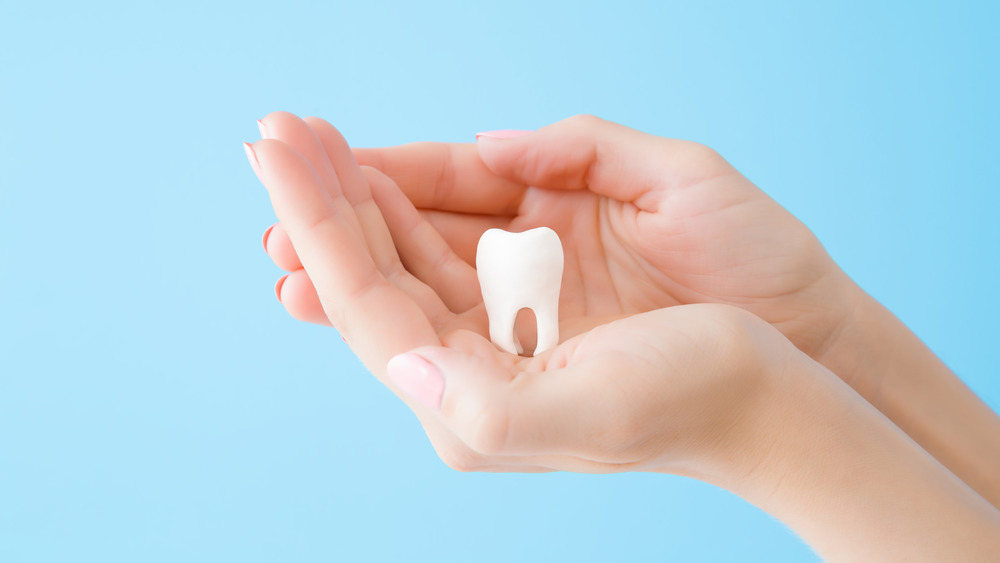The First Thing You Should Do When You Lose A Tooth
Have you ever lost a tooth? Sure, we all have, at least if we're past the age of 6. Losing our baby teeth is natural, even if occasionally painful, particularly if you jump-start the process in anticipation of what the tooth fairy might bring. Losing a permanent tooth, however, is far more unpleasant. Dr. Bill Busch, a Kansas City dentist who is the founder of Team Smile, tells us teeth can be lost for a number of reasons.
"Any blunt force or trauma can knock a tooth or teeth out," Busch says, citing sports injuries, accidents, and fights as possible sources of such trauma. He says teeth can also be lost from severe gum disease or periodontal disease, something he tells us "old-timers called... pyorrhea, which means pus from the gums." A couple more possible causes of tooth loss include a bad dental abscess, some types of cancer, radiation treatment, or even biting down on candy, bones, or ice, all things Dr. Busch describes as being potentially "too hard for your tooth to handle the load."
If this makes you paranoid about losing a tooth, don't worry. There's a good chance the tooth can still be saved if you act quickly.
How to save your knocked-out tooth
Dr. Busch advises that, as soon as your tooth gets knocked out, you should immediately pick it up, even if it's been broken, saying "always save any pieces of tooth if possible." You'll then need to place it (or all of the fragments) in milk. Don't use water, though — The Conversation says it has to be milk, as milk is the medium that can keep the tooth cells alive. If you don't have any milk on hand, saliva can be used in a pinch, which basically means storing the tooth inside your mouth. You could either tuck it firmly in your cheek or, as Dr. Busch suggests, "store the tooth under your tongue," but he adds, "don't swallow it."
The next thing you need to do, Dr. Busch says, is to "see your dentist immediately," making sure that you get there "within one hour." (The Conversation, as well as the American Association of Endodontists, both advocate arriving within 30 minutes.) If you've taken these steps, there's a good chance your tooth can be restored since, as Dr. Busch tells us, "Modern dentistry is amazing and we usually always have a way to fix things!"

